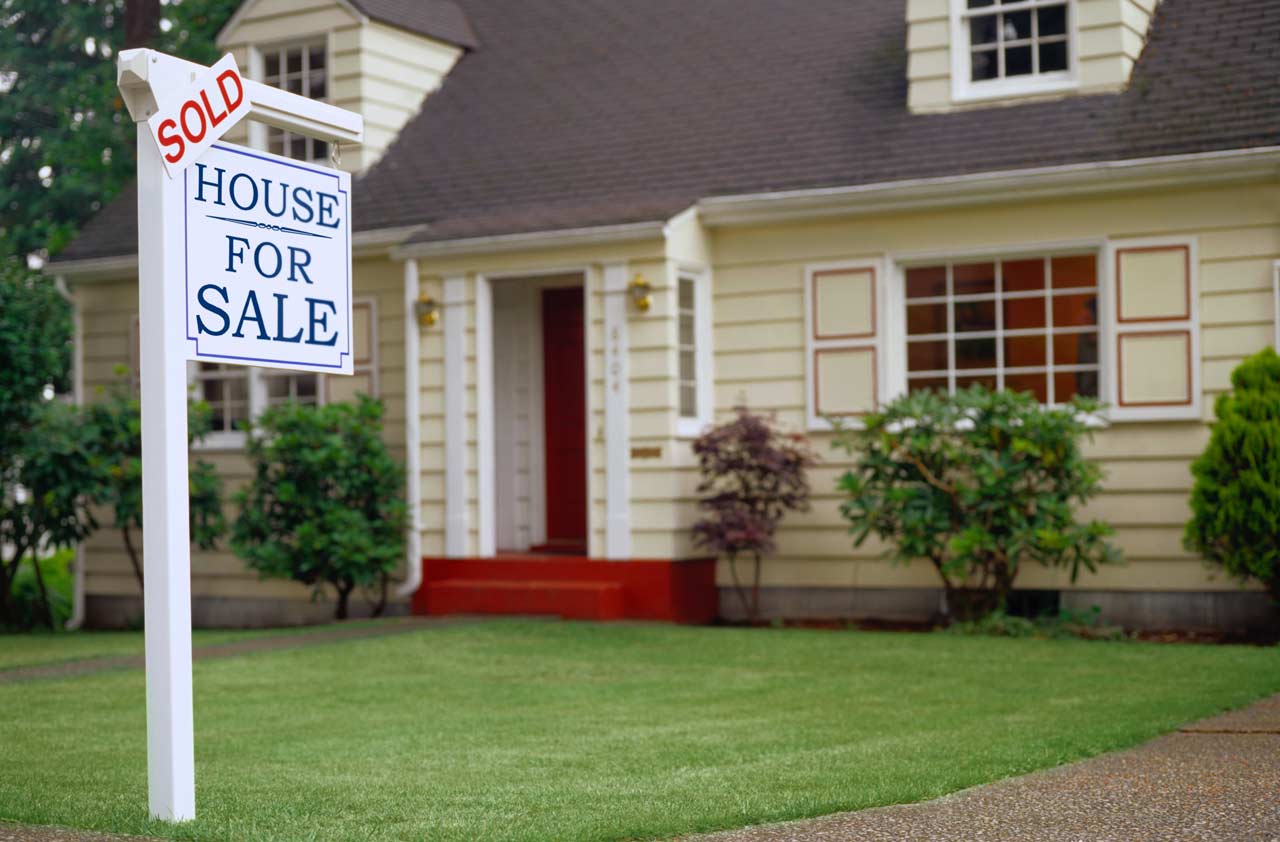Is Gentrification a Plus for the Neighbors?
Gentrification is often used unfairly to describe what should be viewed as a normal and positive stage in the life cycle of cities.

Profit and prosper with the best of Kiplinger's advice on investing, taxes, retirement, personal finance and much more. Delivered daily. Enter your email in the box and click Sign Me Up.
You are now subscribed
Your newsletter sign-up was successful
Want to add more newsletters?

Delivered daily
Kiplinger Today
Profit and prosper with the best of Kiplinger's advice on investing, taxes, retirement, personal finance and much more delivered daily. Smart money moves start here.

Sent five days a week
Kiplinger A Step Ahead
Get practical help to make better financial decisions in your everyday life, from spending to savings on top deals.

Delivered daily
Kiplinger Closing Bell
Get today's biggest financial and investing headlines delivered to your inbox every day the U.S. stock market is open.

Sent twice a week
Kiplinger Adviser Intel
Financial pros across the country share best practices and fresh tactics to preserve and grow your wealth.

Delivered weekly
Kiplinger Tax Tips
Trim your federal and state tax bills with practical tax-planning and tax-cutting strategies.

Sent twice a week
Kiplinger Retirement Tips
Your twice-a-week guide to planning and enjoying a financially secure and richly rewarding retirement

Sent bimonthly.
Kiplinger Adviser Angle
Insights for advisers, wealth managers and other financial professionals.

Sent twice a week
Kiplinger Investing Weekly
Your twice-a-week roundup of promising stocks, funds, companies and industries you should consider, ones you should avoid, and why.

Sent weekly for six weeks
Kiplinger Invest for Retirement
Your step-by-step six-part series on how to invest for retirement, from devising a successful strategy to exactly which investments to choose.
Q: My husband and I recently bought a restored single-family townhouse, which had formerly been divided into three rental units, in a once-blighted neighborhood. We hope to stay in the area for many years and raise a family here. At a neighborhood meeting, we were dismayed to hear activists railing against “gentrifiers” who are causing longtime renters to be evicted from their homes. My husband asked me to keep my mouth shut, but I feel we are being unfairly maligned and should offer a different point of view. What do you think?
I agree that gentrification is often used unfairly to describe what should be viewed simply as a normal and positive stage in the life cycle of cities, with neighborhoods rising, declining and being reborn over many years.
Yes, gentrification can cause hardship in some cases. If an elderly homeowner wants to stay put but can’t pay the rising property taxes, she might have to sell her home or take out a reverse mortgage against her equity. And, yes, low-income tenants have to find other housing they can afford when their building is sold and restored to house a single family like yours. But many large cities have strong tenants’ rights laws, so the odds are good that the former renters of your new home were treated fairly by whoever restored it.
From just $107.88 $24.99 for Kiplinger Personal Finance
Become a smarter, better informed investor. Subscribe from just $107.88 $24.99, plus get up to 4 Special Issues

Sign up for Kiplinger’s Free Newsletters
Profit and prosper with the best of expert advice on investing, taxes, retirement, personal finance and more - straight to your e-mail.
Profit and prosper with the best of expert advice - straight to your e-mail.
Gentrification is associated with rising property values, which boost tax revenue for schools, parks and other social services. In many changing neighborhoods, the sellers are elderly, longtime homeowners who get higher prices for their unrestored homes than they ever dreamed possible -- or their heirs benefit from the sale after the owners’ death. The buyers are often young adults of various races and ethnic backgrounds who bring vitality and civic commitment to the neighborhood.
Don’t expect to convert antagonistic activists to your point of view, but do try to find a low-key, courteous way to make some of these points at the appropriate time. And just be a good neighbor to everyone.
Send your own money-and-ethics question to editor in chief Knight Kiplinger.
Profit and prosper with the best of Kiplinger's advice on investing, taxes, retirement, personal finance and much more. Delivered daily. Enter your email in the box and click Sign Me Up.

Knight came to Kiplinger in 1983, after 13 years in daily newspaper journalism, the last six as Washington bureau chief of the Ottaway Newspapers division of Dow Jones. A frequent speaker before business audiences, he has appeared on NPR, CNN, Fox and CNBC, among other networks. Knight contributes to the weekly Kiplinger Letter.
-
 How Much It Costs to Host a Super Bowl Party in 2026
How Much It Costs to Host a Super Bowl Party in 2026Hosting a Super Bowl party in 2026 could cost you. Here's a breakdown of food, drink and entertainment costs — plus ways to save.
-
 3 Reasons to Use a 5-Year CD As You Approach Retirement
3 Reasons to Use a 5-Year CD As You Approach RetirementA five-year CD can help you reach other milestones as you approach retirement.
-
 Your Adult Kids Are Doing Fine. Is It Time To Spend Some of Their Inheritance?
Your Adult Kids Are Doing Fine. Is It Time To Spend Some of Their Inheritance?If your kids are successful, do they need an inheritance? Ask yourself these four questions before passing down another dollar.
-
 Ways to Protect Borrowers From Predatory Home Lending
Ways to Protect Borrowers From Predatory Home Lendingreal estate Land contracts drain low-income communities of resources.
-
 Should My Neighbor Be Allowed to Turn His House Into a Short-Term Rental?
Should My Neighbor Be Allowed to Turn His House Into a Short-Term Rental?real estate It's a debate that is raging in all of America’s major cities.
-
 Should Tear-Down Plans Be Disclosed by Home Buyers?
Should Tear-Down Plans Be Disclosed by Home Buyers?real estate When a house for sale is worth more as a buildable lot than as a small, outdated residence, expect the highest bids to come from buyers intent on demolition.
-
Should New Residents Contribute Equally to Community Funds?
Budgeting Acknowledging building workers' helpfulness is always appropriate and welcome. But should all residents pay the same amount?
-
Don't Make a Deal You Don't Intend to Honor
Business Costs & Regulation An ethical businessman bids what he truly believes an asset is worth and what he's fully committed to paying.
-
Is Rent Control Unfair to New Tenants?
real estate Like most governmental price-fixing, rent control invites black-market evasion.
-
It's Not Okay to Skip Out on a Mortgage
real estate Default is ethical only for people who can no longer afford their home because of circumstances beyond their control, such as job loss.